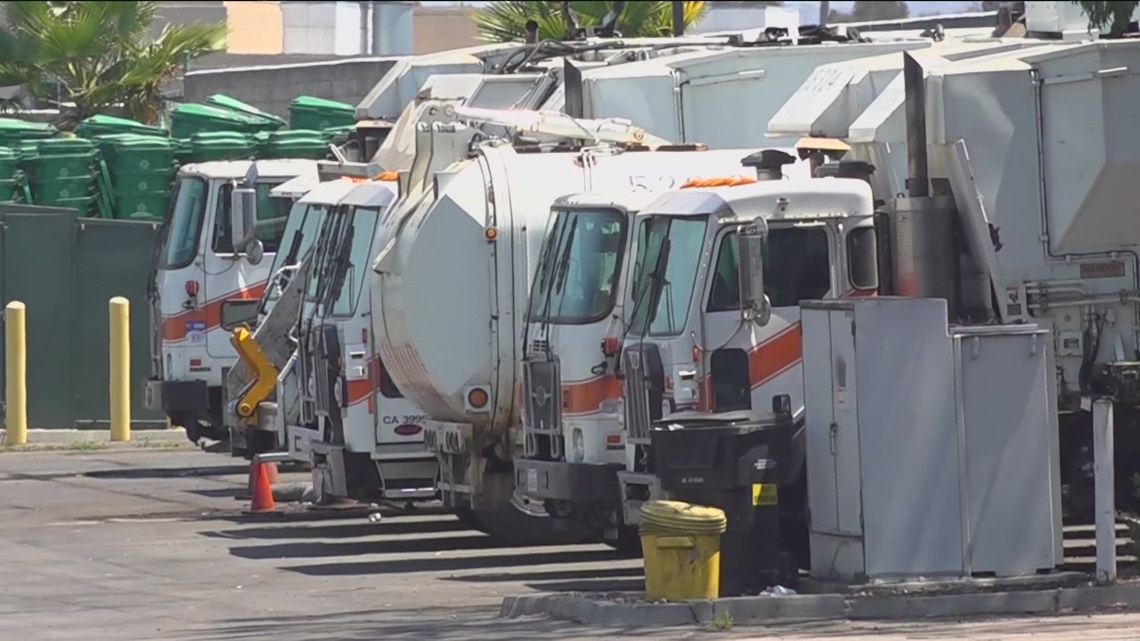“We’re screaming ‘No!’ now to bring some sense of logic to all of this, and asking our city officials to act fiscally responsible,” said Patty Ducey-Brooks.
SAN DIEGO — More than a dozen San Diegans are suing the City of San Diego over the new trash fee, calling it unconstitutional. Several of them stood across the street from the 101 Ash Street building Monday morning.
“There’s no better place to talk about trash than Ash,” said their attorney, former city attorney Michael Aguirre.
“The city is proposing to charge the people of San Diego $148 million for solid waste collection next year. That’s where the money is going. To fill that hole for places like 101 Ash,” he added.
“We have evidence that this is like a money game. How much can we get out of the taxpayers before they will scream ‘No!’ And so we’re screaming ‘No’ now to bring some sense of logic to all of this, and asking our city officials to act fiscally responsible,” said plaintiff Patty Ducey-Brooks.
“If you are having a budget problem, you have to look at the root cause of it, and that’s not being done. You don’t continue to spend more money and then expect the taxpayers to make up that deficit,” she added.
The plaintiffs said the new fee violates Prop 218 because it exceeds the cost of service.
“We want the fee that is charged to be in line with what is required by the state constitution, and that is a fee that’s no more than the actual cost,” said plaintiff Mary Brown.
Voters approved Measure B in 2022, which allowed the city to charge for trash and recycling pickup. The city has said that out of its 1.4 million population, 220,000 households weren’t paying for trash pickup. Therefore, Measure B helped make sure everyone was paying their fair share for things like road repair, libraries, police and fire.
However, the plaintiffs argue that when voters approved Measure B, the fee was listed at a lower price than what they were charged.
“What we are proposing is that the council stop, go back, decide they’re only going to charge what they’ve charged in the past, maybe an average over the last four years, go back and re-do it and do it right, and then take the time over the next few years to get your system set up,” said Aguirre.
